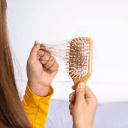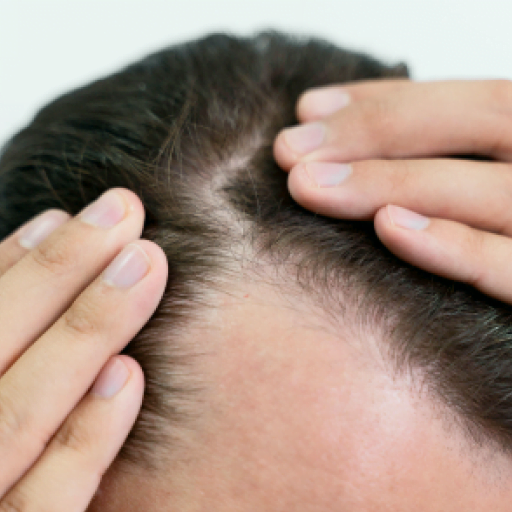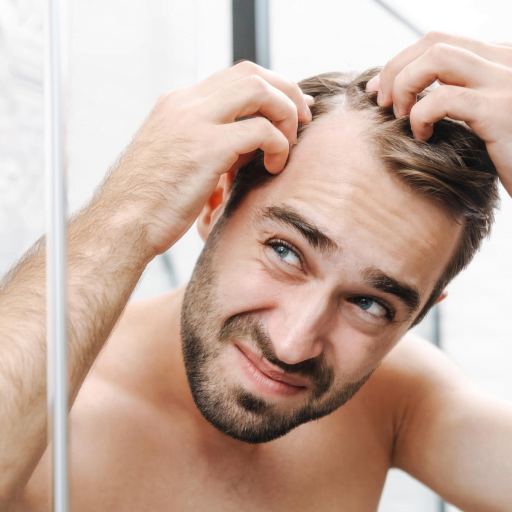Much will depend on the underlying cause for the hair loss, since it can occur for a variety of
reasons. It can be related to excessive stress, poor diet, a sudden shock, or a fungal infection.
Certain medications and medical conditions can result in hair loss, along with hormonal changes
and some types of hair styles and treatments.
The first step for individuals with thinning hair is to see a hair loss specialist to discover the
cause and obtain a diagnosis. Male pattern baldness isn’t preventable, but there are steps
individuals can take to slow down hair loss and thinning from other causes.
Medication
A number of over-the-counter products containing minoxidil have been proven effective in
slowing hair loss. It’s available in a foam or liquid that’s applied to the head. Finasteride is a
prescription-only oral medication. Noticeable results are typically seen in 6 months. Hair loss
and thinning will resume if the medication is discontinued.
Fungi
Tinea capitis is a mold-like fungal infection, also known as ringworm. It’s related to athlete’s
foot (tinea pedis) and jock itch (tinea cruris). Over-the-counter shampoos are available that can
help, but oral medications are available that will kill the fungus. It’s highly contagious.
Styling
Some types of hair treatments can damage hair and lead to thinning and loss. Give hair a rest.
Styles that are tight place extra tension and stress on hair. The scalp can be damaged from UV
rays with very short styles.
Diet
Any deficit in vitamins and minerals can affect hair growth, especially for individuals following a
vegan lifestyle. Men can increase their protein levels, either by consuming more protein rich
foods or with protein drinks.
Vitamins
One of the things a hair specialist will do is have blood tests performed to identify any vitamin
or mineral deficiencies. Low levels of vitamins A, B, C, D, E, iron and zinc will affect hair growth.
Avoid restrictive weight loss programs.
To schedule your hair transplant/hair restoration appointment at one of our South Florida Centers please contact us at (941) 315-7033


